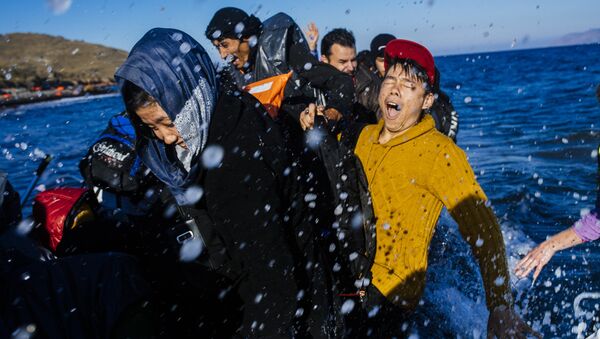Merkel is already facing a split in her coalition government over her stance on the European asylum-seeker crisis, having declared Germany's doors open and refusing to set a limit on the total number of refugees her country will take.
Merkel reached an agreement with Horst Seehofer, the Governor of Bavaria — which has borne the brunt of the refugee crisis on its border with Austria — to set up transit zones in the southern state to hold and process migrants and refugees.
Those who are not refugees from war zones and whose asylum request stands no chance of being allowed will be sent back from those zones — but only to 'safe countries'. Hitherto, Turkey was considered not to be safe because of widespread concerns over human rights issues and Erdogan's policies toward, among others, Kurds and the media.
In its October 2014 progress report on Turkish accession to the EU, the European Commission also said it had "serious concerns regarding the independence of the judiciary and separation of powers.
"The widespread reassignments and dismissals of police officers, judges and prosecutors, despite the government's claim that these were not linked to the anti-corruption case, have impacted on the effective functioning of the relevant institutions, and raise questions as to the way procedures were used to formalize these."
Despite this, a senior German government official told Reuters on condition of anonymity: "I could imagine that in a broader context it would make sense to put Turkey on the list of safe countries," apparently signaling a reversal of opinion in Berlin.
#migration merkel to turkey on sunday. crucial. but 2 weeks to big election, she's accused of electioneering for erdogan
— Ian Traynor (@traynorbrussels) October 15, 2015
"Excessive Force, Unfair Trials"
By declaring Turkey to be a safe country, economic migrants and refugees would be refused asylum and sent back to Turkey, despite opposition from human rights groups who say many are fleeing oppression under Erdogan.
Giving in to all Erdogan's demands won't solve #refugeecrisis. Europe has to show responsibility & put in place real asylum/migration policy
— Guy Verhofstadt (@GuyVerhofstadt) October 15, 2015
In its 2014/5 report into Turkey, Amnesty International said "the authorities became more authoritarian in responding to critics. They undermined the independence of the judiciary, introduced new restrictions on internet freedoms and handed unprecedented powers to the country's intelligence agency.
"The rights of peaceful demonstrators were violated and police officers enjoyed near-total impunity for the use of excessive force. Unfair trials continued, especially under anti-terrorism laws, but the excessive use and length of pre-trial detention declined. By the end of the year, 1.6 million Syrian refugees were living in Turkey, many of them destitute."
Merkel is also believed to want to add Kosovo, Albania and Montenegro to the 'safe countries' list so that asylum-seekers from those countries will also be refused asylum and sent back.



